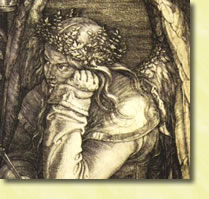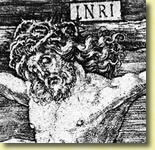Over at StandFirm, Sarah Hey has interrupted the usual grousing to post “A Few Thoughts on Happiness: Is Happiness A “Moral Obligation”?”. This led to the following offhand remarks.
 While Aristotle (and Christian eudaemonists like Augustine and Thomas Aquinas and Richard Hooker) granted that beatitude (translated “happiness,” but more like “complete well being”) was correlated with character, they saw it as a byproduct of something else, namely doing a worthwhile activity. To set out to pursue happiness in itself led to unhappiness. However, doing something inherently worthwhile, and doing it well, can lead to happiness.
While Aristotle (and Christian eudaemonists like Augustine and Thomas Aquinas and Richard Hooker) granted that beatitude (translated “happiness,” but more like “complete well being”) was correlated with character, they saw it as a byproduct of something else, namely doing a worthwhile activity. To set out to pursue happiness in itself led to unhappiness. However, doing something inherently worthwhile, and doing it well, can lead to happiness.
This is the unexpressed assumption in Ignatius Loyola’s Spiritual Exercises, the intent of which is to help sort out one’s vocation. One begins not by asking “What makes me happy?,” but “What do I love?”
How to be happy? Pursue those things you love doing, and, to the extent it is possible, do good. Don’t pursue happiness for its own sake. Be aware that if you’re unhappy, that may be a sign that you need to change something you’re doing.
May be, not must be. Our ancestors were very savvy about the passions (not to be equated with the emotions, full stop), and recognized that some people just had a disposition to melancholy.
The most significant way in which Augustine, Thomas Aquinas, and Richard Hooker differ from Aristotle on happiness is that Aristotle believed neither in a personal God nor in an afterlife. Like so many of our contemporaries, Aristotle believed that if we were going to be happy, it had to be here and now. In contrast, the Augustinian tradition recognizes that God is the Greatest Good (summum bonum), and true happiness can be found only in the beatific vision (seeing God “face to face” and enjoying him forever). This is what we are made for, and it is the fuel that drives all our seeking for happiness. As Augustine expressed it at the beginning of the Confessions: “You have made us for yourself, and our hearts our restless until they rest in you.” (more…)




